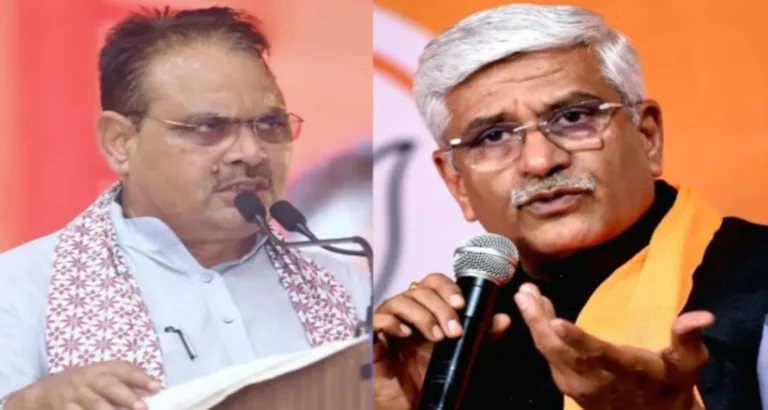Finfluencers or financial influencers are significant and contentious players in the vast digital landscape in which financial advice is a click away. One such figure is Abhishek Karan, the most hotly debated in the world of fi-influencing. A mammoth figure on social media, Abhishek Karan has cultivated a niche for himself as an educator, trader, and investor. However, his methods, intent, and outcomes sparked a lot of fire on both sides: Is he a true finance guru or a polished scam artist? The article juxtaposes the evidence from both camps so as to arrive at a resolution concerning the spirited debate.
1. The Rise of Abhishek Kar in the Financial World
A very long and controversial journey from being a part of a normal middle-class family in New Delhi, the name has become a more or less accepted name in the financial sphere of India-Abhishek Kar. The rushes of adventure he gets in the digital finance realm through this endeavor came from an eternal fascination with stock markets, which gradually later attracted him to most of them across all platforms of social media. Well, Kar’s education established him in a formal run-in with finance, having earned an MBA in Business Administration and Management, while the path laid by social media was the one he chose to gain name.
The YouTube channel of Kar, one among many others, turned out to be an encyclopedia of finance-a stock market tip here, a personal finance suggestion there-for millions eager to learn from these insights. He immediately warmed towards the simplification of finance in lieu of the novice, as well as for experiences of investing, thus winning hearts. For good measure, he repeated the free educational offerings on platforms like Instagram, Twitter, and Telegram, selling premium course content promising more in-depth insights into trading and investing.
The scheme also included guest lectures at some of the prestigious institutions in India, including IITs and ICAI, further solidifying his position as an expert. The Trader Room was his trading educational establishment, conferring upon him legitimacy as an instructor. The book of Kar “Stocks and Life” soon made it to the altar of Amazon bestsellers-another feather in his cap of being an authority in this field.
2. Allegations of Misconduct and Deception
Allegations from other traders and influencers such as Shreyas Bandi have made the first great dent in the reputation of Kar, who was accused of showcasing fake P and L statements to promote his trading courses and mentorship programs. The revelations made by Bandi on the X platform became a public spectacle that forced Kar to fight on the defensive. Accusations against Kar included:
- Faked Trading Success: This charge said that Kar exhibited doctored or outright false profit and loss statements to lure subscribers into his premium services.
- Violations Against SEBI: Trading advice was being allegedly given by Kar through obscure, coded messages, while Kar was teaching trading advice without SEBI registration.
- Educational Exploitation: Kar’s detractors said that his courses were pitching trading tips over general education and that his so-called success stories were cherry-picked to misrepresent his trading record.
These claims were anything but a quiet whisper in the digital hallways, leading to very public confrontations on X, where Kar was challenged on providing verified trading records. Under great duress, Kar acknowledged at least some of these activities but framed it as being misinterpreted or blown out of proportion. Abhishek Kar admitted to providing buy and sell calls in disguise, thereby violating SEBI norms, as per the article by Moneycontrol published under the headline “Finfluencer Abhishek Kar Admits to Giving ‘Buy’ and ‘Sell’ Calls in Disguise, Violates SEBI Norms.”
3. The Defense and Kar’s Narrative
Abhishek Kar has defended himself against the accusations he faces, abscondingly continuing to bring fresh charges from time to time. His defense is to narrate his account of being an educator and not a consultant, which is far from the value he insists upon on education. Some examples of those who bolster his case are:
- Aiming to Empower-Everytime, Abhishek Kar has maintained claims that he has never meant to give direct investment advice but to impart financial empowerment into the lives of persons. By this, he tends to provide education regarding trade strategies, risk management, and market analysis, making it clear that these are, according to him, all educational measures in action as seen in his programs and social media posts.
- Market Realities– Supporters of Kar contend stocks are just too unpredictable. Heavy losses are incurred by the best traders. So, it would only be fair to look at the question of Kar’s credibility as far too simplistic against the ever-so-complex background of stock market trading.
- Personal Journey- Most of Kar’s followers can relate to his story of going from rags to riches to a finance influencer. Such a tale of self-made success tells one that knowledge and hard work can lead themselves to financial independence. This part of Kar’s persona has gathered him quite a following, some of whom attribute their very first steps into investing to him.
There is also acknowledgement of the complaints by Kar, quite a number of which he feels have an element of truth-that including this part about how he disseminated his messages over Telegram. He admits to code terms, to some extent; “B” and “S” were among them but insists that the scope was educationally informed and not in any direct advisory setting. This defense went on to explain very clearly why a distinction needed to be made and better appreciated between educational content and investment advice. His supporters maintain that there may have been bad judgment or indirect presentation of such thoughts, but the merit of his contribution to financial education should not, overall, be dismissed. [Source: LiveMint]
4. Regulatory Actions and Public Reaction
Securities and Exchange Board of India, as said, has set its own measures for sinking or restricting digital platforms’ financial advice. Controversies related to too much happening around Abhishek Kar have not been heeded by regulatory bodies:
- SEBI’s Response: Abhishek Kar and unregistered finfluencers have lately come under SEBI’s mighty radar. After allegations against him and just before aiming for restrictions on finfluencers, SEBI stiffened its grip with mandatory regulations to force the influencers to register if they give any kind of investment advice or the other. The Kar episode has formed part of this clampdown, and actions have also been made whereby restrictions were imposed on his services over the platforms where unregistered advice is given.
- Legal Actions: In present times, the public outcries and exposures constitute a starting point for initiating a legal action against Abhishek Kar. Assam Police, for instance, processed a case against him on complaints related to his comments on cultural practices of Assam that at least do not pertain to his financial dealing in it but do invoke adverse public commentary against him. There may have been some talk of some potential legal ramifications flowing from Kar’s activities as a financial advisor affecting the SEBI laws.
Public Reaction:
- Diverse Responses: The public has quite a split opinion regarding the whole episode of Abhishek Kar, mainly because the few of his fans complain of a ground-naught pay towards and complain of financial literacy but for others, that is just showing paid services and so must be answerable. The discussion has been so flooded with scintillating hashtags and posts either for or against Abhishek Kar that it raises calls to overhaul the system regulatory changes.
- Demands for Accountability: Hoopla rises from time to time, and those chants included more transparency and accountability in the finfluencing space. Kar and others have already made their way into the limelight, with finfluencers pressed to support their claims with verifiable trading records. The regulators are also coming back to redefine the contours of investment advice.
- Education vs Advisory: The public is now more than ever privy to what educational content means as opposed to pure investment advice and for the first time is beginning to ask who qualifies influencers to be sharing knowledge and what their motives are. The whole debate seems, however, to open a much larger one-the very definition of “online financial education.”
The case of Abhishek Kar could be the defining moment finfluencers in India have been waiting for as joint actions by regulators and the public clamoring for justice. This case calls for an environment to be regulated for the provision of financial education that does not mislead or exploits the uninformed investor. This might also have set a precedent for how such other cases will be handled in the future concerning the credibility, transparency, and compliance with regulations, just as the state of affairs exists now in the digital age of finance education.
5. Conclusion: Fraud or Guru – A Complex Verdict
The question is still unanswered: Is he fraudulent or a guru? There is more than ample evidence to support the fraud theory, including his apparent admission of guilt, and shameful public disputes over his own trading claims. But one must also give him credit for some financial literacy outreach, especially to the youth.
- Now where the focus really lies concerns the regulations, transparency, and accountability of those who seek to educate on financial matters.
- Regulatory Compliance: It has been a long-drawn need for clear regulations on the finfluencer landscape. In that context, the Abhishek Kar case is a strong reminder of how well this much-needed distinction between educational and investment services is pursued in practice.
- Transparency: If Kar is to be called a guru, transparency regarding his trading results and educational claims is of utmost importance. The integration of verified P&L statements into the curriculum would be trailblazing for the credibility of his teachings.
- Ethical Practices: Whether Kar’s interventions are educational works or exploitation depends upon the ethical ground. There is a clear distinction between imparting lessons on trading strategies and raising money from investors.
Ultimately, in reality, it becomes an acid test to determine what Kar is going to do in the finance world. His effort in educating the masses on finance, especially for those who are just getting into the field, cannot be completely brushed aside; however, a serious consideration must be given to the charges of fraud and manipulation. The onus remains on anyone who idolizes Kar or any of the other finfluencers to carry out their due diligence. If for some reason Kar does choose to recover his dignity and restore trust, not only a sincere apology might be expected; he would almost have to also completely turn the way he operates inside out.
A dire need for financial literacy finds in Abhishek Kar an emblematic lesson serving two roles: diagnosing undesirable practices and exhorting the need for regulatory clarity and informed consumer behavior toward financial literacy.





